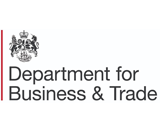Copycat web site crackdown
In a crackdown on copycat web sites, by the National Trading Standards eCrime Team (NTSeCT), five people have been arrested following raids on four properties across the UK. The crackdown taken last week also sees the suspension of at least 25 copycat websites.
Alongside these enforcement efforts, National Trading Standards is issuing advice for consumers to beat the cyber con-artists, including the video guide below and an infographic.
Ordering new passports, booking driving tests and renewing car tax discs are just some of the ways that people are unwittingly being left out-of-pocket by shrewd fraudsters who operate ‘copycat’ websites.
By imitating official government services online, copycat websites are designed to trick you into parting with your cash unnecessarily by charging users for services that are provided cheaper or free-of-charge through official government channels.
Over 5,000 complaints were made to Citizens Advice last year and 700 were made to the Advertising Standards Authority (ASA). The most commonly reported complaints related to tax returns, driving licences, EHICs and passports.*
Lord Toby Harris, Chair of the National Trading Standards Board, said:
"Our eCrime team is clamping down on the cyber fraudsters behind these websites and we are making it as difficult as possible for these online hoaxers to operate. We have been working with search engines such as Google and Bing to remove adverts from online search results and we continue to gather intelligence across the country to help tackle this issue.
“We urge you to avoid unofficial websites which could leave you out-of-pocket or at risk of identity theft. Only use the GOV.UK website to find government services. If you come across copycat websites, report them to Citizens Advice.”
The misleading websites often use URLs that include fragments such as ‘govuk’, ‘directgov’ or relevant organisation names to make them appear as official providers of certain services. Similar design features are also incorporated to replicate the ‘look and feel’ of official service websites. To report a misleading or copycat website, you can call the Citizens Advice consumer service on 03454 04 05 06.
Jo Swinson, Minister for Consumer Affairs, said:
“It’s great that it’s becoming easier and more common to use the internet to order official documents such as passports or tax discs, but people should be aware of rogue websites that are out there trying to exploit them and take their hard earned cash and even put them at risk of identity theft.
“The enforcement action which the National Trading Standards eCrime team has taken demonstrates the Government’s commitment to tackling these scammers. We will not let them get away with misleading consumers.
“The video launched today will mean that people are less likely to fall foul of clever fraudsters and be better equipped to access the official government sites. The key thing to remember that the best place to find government information and services is GOV.UK.”
The consumer advice published by the National Trading Standards eCrime Team, including the information video above and an infographic.
Martin Lewis, creator of MoneySavingExpert, who provided the voiceover for the National Trading Standards video above, says
“Sadly, vigilance is necessary even when using official services. Copycat websites disguise themselves as the real thing, but charge you for a useless service. I’ve lost count of the number of people who contact me upset and want to know how to get their cash back. Generally that’s very difficult, which is why you need to be tooled up in advance with the knowledge National Trading Standards is putting out today. If you want a Government service, go through www.gov.uk - don’t use search engines.”
Top tips to avoid being duped include:
- Use GOV.UK. It is the easiest and most secure place to find government services and information online
- Instead of searching for the services you need via a search engine, go to GOV.UK and use the search function there. Then you’ll know you’re on the official site
- If you do use a search engine, look out for the differences between natural search results and paid-for search results.
Minister for the Cabinet Office Francis Maude said:
“Britain is a world leader in digital reform, and we will do everything necessary to ensure that we clamp down on websites that mislead users of government services.”
“We’ve streamlined our services onto the award winning GOV.UK to ensure that there’s one government website that people can trust and to make things easier for users.
“Our work will continue, and that’s why we’ve recently launched a major campaign highlighting the issue and will continue our work with search engine providers which has already seen a number of these websites removed.”
To begin your search for government services, or for more information on how to report a misleading website, visit GOV.UK and use the search tool available.






